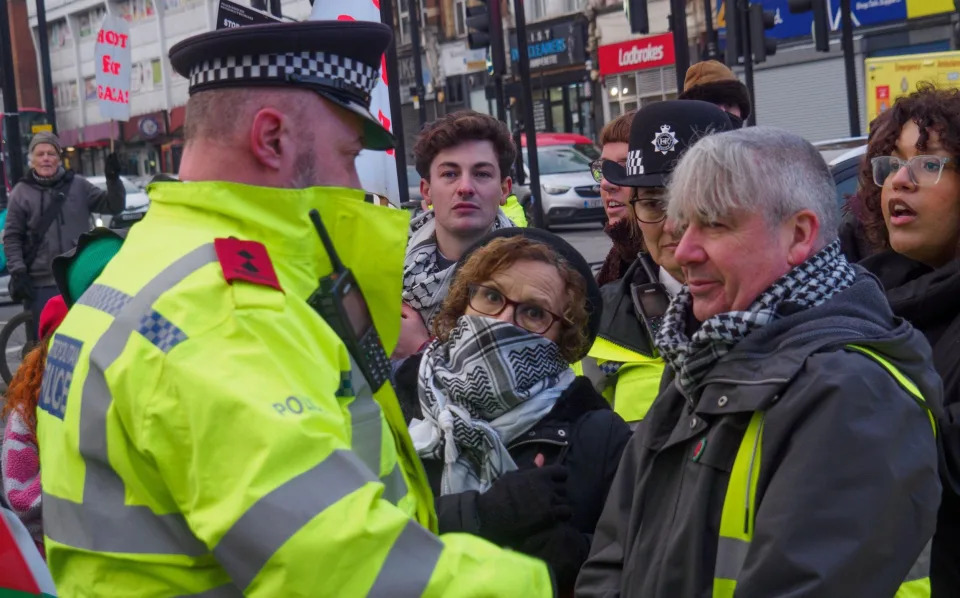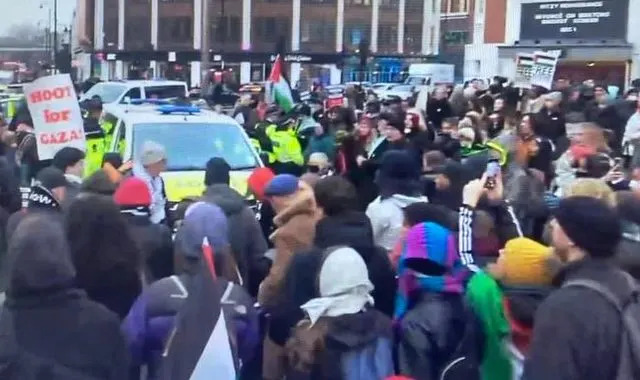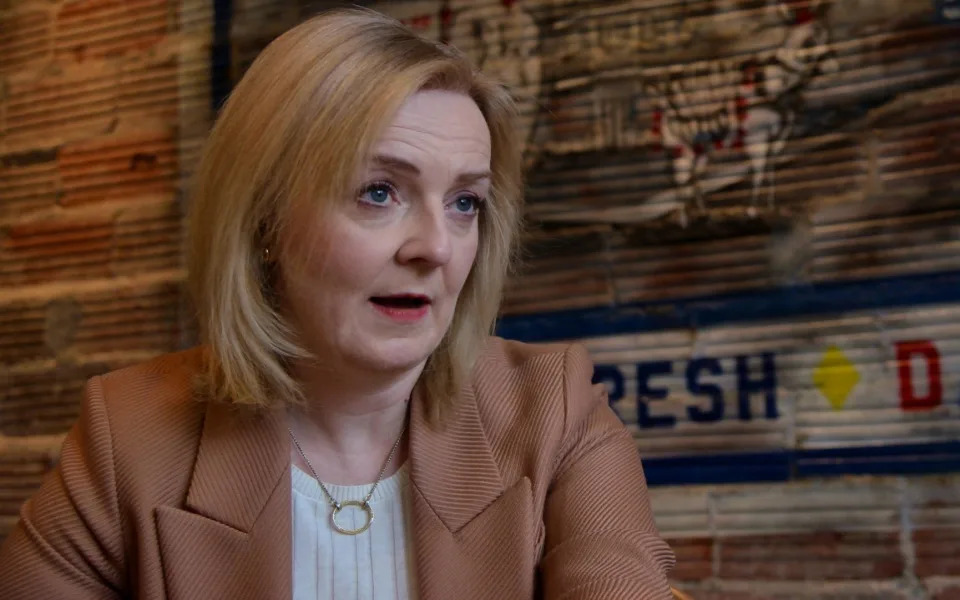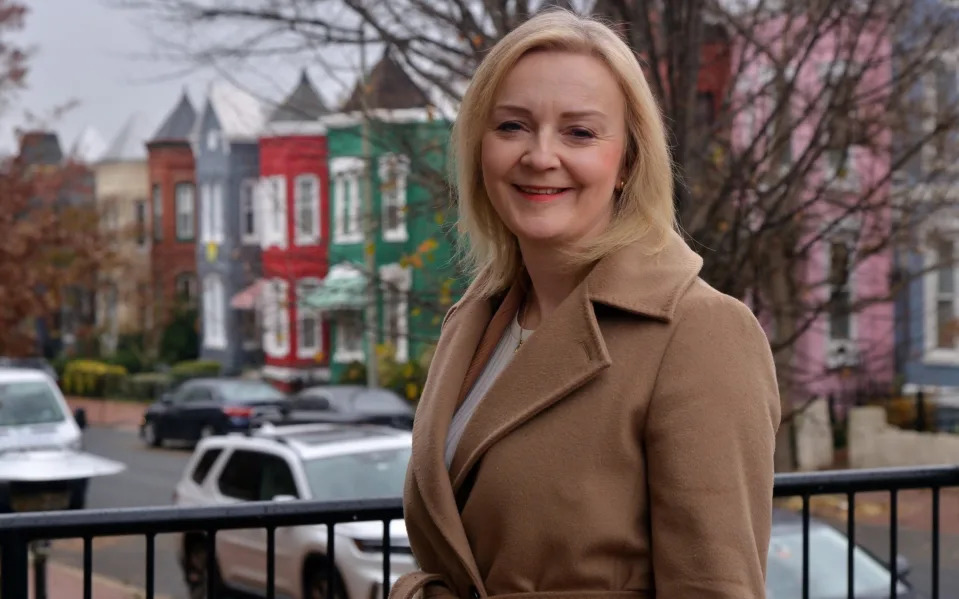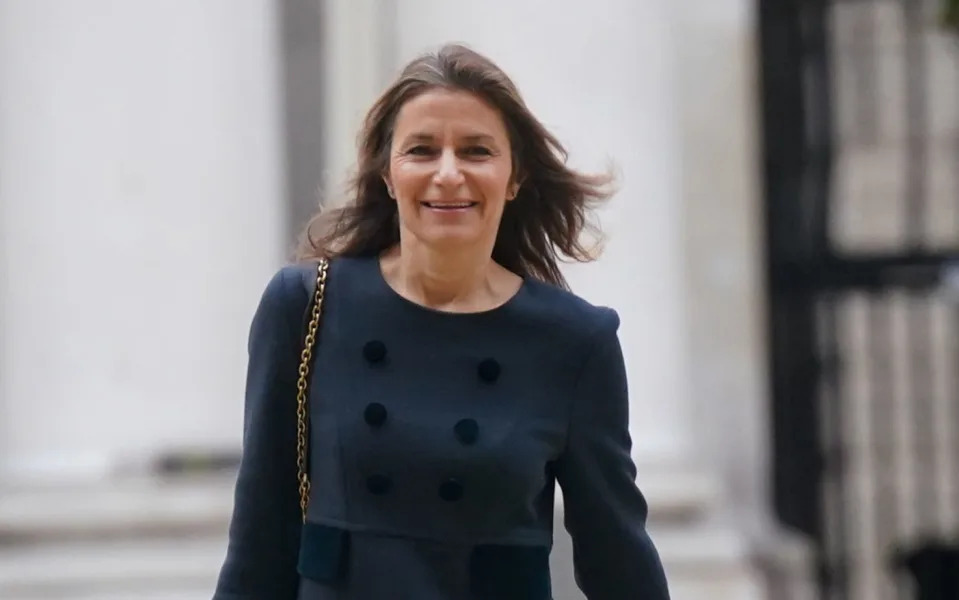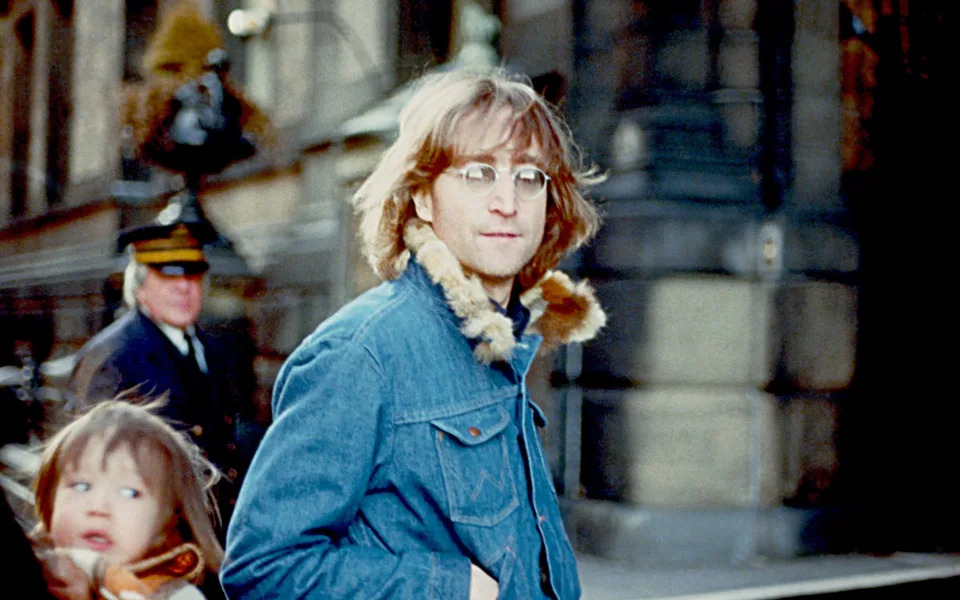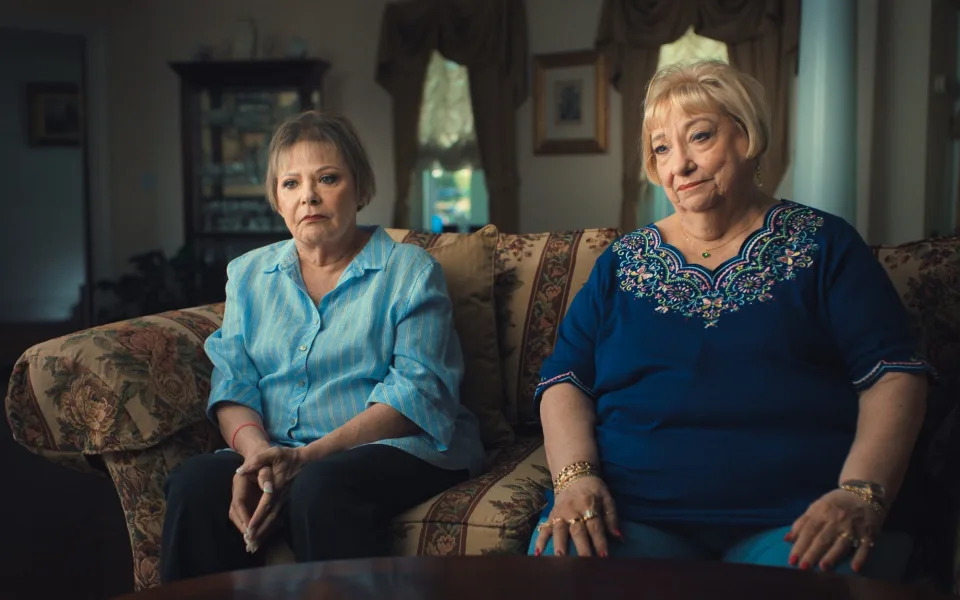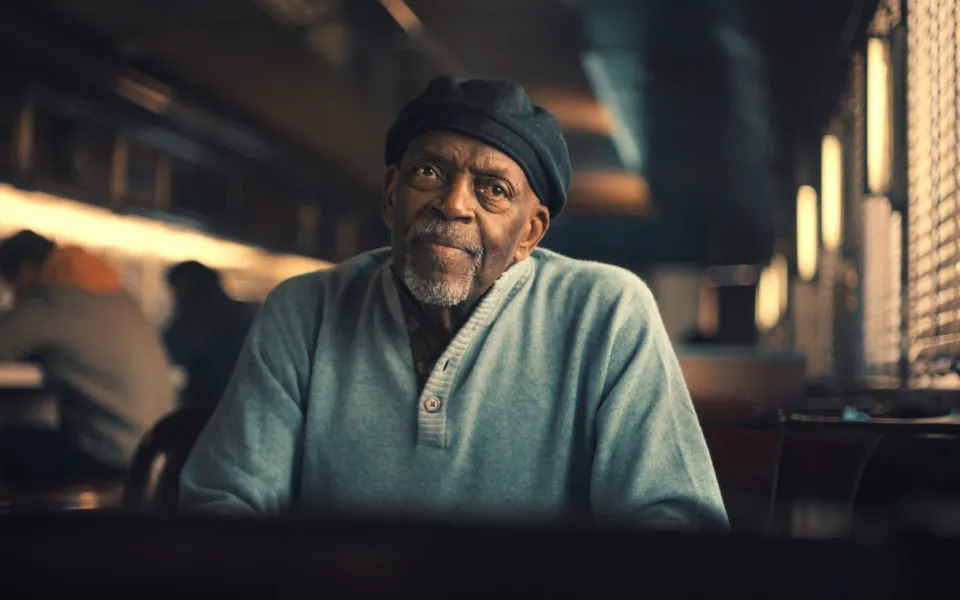Doctor Who: Wild Blue Yonder, review: a jaw-dropping injection of sheer Saturday night magic
Michael Hogan
Sat, 2 December 2023

Revelling in chemistry: Catherine Tate and David Tennant in Doctor Who: Wild Blue Yonder - James Pardon/BBC
It began with an historical bang and ended with a heartbreaking posthumous appearance. In between, Doctor Who (BBC One) delivered a blockbusting adventure. Writer Russell T Davies warned that Wild Blue Yonder was “weird”. Leading man David Tennant said it was “shocking… unlike any episode ever”. They weren’t wrong. This was a deeply creepy, dazzlingly creative hour of teatime TV.
A witty prologue saw the Tardis crash-land in an apple tree, circa 1666. A certain physicist happened to be sitting beneath it. The Doctor greeted him as “Sir Isaac Newton” before correcting himself and losing the honorific. The colour-blind casting of Nathaniel Curtis, the half-Indian actor best known for starring in Davies’ It’s A Sin, could rattle a few cages. The Doctor (Tennant) and Donna (Catherine Tate) were far more concerned with the fact that the influential polymath was “hot”. They left him with the made-up word “mavity” as a parting gift. He’ll get there eventually.
The main meat of the story took place on a seemingly empty spaceship at the edge of the universe. Except this is sci-fi, where spaceships are rarely really empty. Lying in wait was “something so bad that the Tardis ran away”: two shape-shifting, war-mongering lifeforms which morphed into doppelgängers of the Doctor and Donna, planning to steal the Tardis and wreak intergalactic havoc. Like Newton said: “Odd bodkins! What the devil?”
As their physical forms settled, they sprouted long arms, slack jaws and vampiric teeth. They ran on all fours, grew to outlandish size, got stuck in corridors and melted into puddles. Unsettling and strange, they referenced horror films from Invasion of The Body Snatchers to Jordan Peele’s Us.
The design team faced a challenge bringing to life what Davies had written on the page. They rose to it. The show’s new distribution deal with Disney brings a boosted budget, which was visible in the fully realised spacecraft and Hollywood-worthy visual effects. These were supplemented by fine physical acting by Tennant and Tate, playing their own doubles in eerie style.
When they finally returned to Earth, they were greeted by Wilfred Mott (the late Bernard Cribbins), now wheelchair-bound but still a doughty warrior. Cribbins filmed scenes last year before his death. The Doctor spoke for us all when he beamed: “Now nothing is wrong. Nothing in the whole wide world. Hello, my old soldier.”
For all the hype-building talk of shocking weirdness, this was Doctor Who boiled down to its essence. The Timelord and his loyal companion, landing somewhere mysterious, finding themselves in trouble. No big cast nor political preaching. Just a rollicking yarn in a confined setting with scary monsters. A back-to-basics “base under siege” adventure with a whopping twist.
Tennant was funny and fizzingly charismatic, revelling in his chemistry with Tate. There was warm bickering, clever wordplay and dark hints of the Doctor being haunted by his origins. Their reunited double act feels nostalgic yet thrillingly new – perfect for marking the show’s 60th anniversary, before launching its new era.
We now await next Saturday’s climactic special The Giggle, which marks the return of classic villain The Toymaker (now played by Neil Patrick Harris) – and presumably ends with Tennant’s regeneration into the 15th Doctor (long-term replacement Ncuti Gatwa). In just two episodes, Davies has restored our faith in family-friendly sci-fi. This was a jaw-dropping, joyous injection of sheer Saturday night magic.
Michael Hogan
Sat, 2 December 2023

Revelling in chemistry: Catherine Tate and David Tennant in Doctor Who: Wild Blue Yonder - James Pardon/BBC
It began with an historical bang and ended with a heartbreaking posthumous appearance. In between, Doctor Who (BBC One) delivered a blockbusting adventure. Writer Russell T Davies warned that Wild Blue Yonder was “weird”. Leading man David Tennant said it was “shocking… unlike any episode ever”. They weren’t wrong. This was a deeply creepy, dazzlingly creative hour of teatime TV.
A witty prologue saw the Tardis crash-land in an apple tree, circa 1666. A certain physicist happened to be sitting beneath it. The Doctor greeted him as “Sir Isaac Newton” before correcting himself and losing the honorific. The colour-blind casting of Nathaniel Curtis, the half-Indian actor best known for starring in Davies’ It’s A Sin, could rattle a few cages. The Doctor (Tennant) and Donna (Catherine Tate) were far more concerned with the fact that the influential polymath was “hot”. They left him with the made-up word “mavity” as a parting gift. He’ll get there eventually.
The main meat of the story took place on a seemingly empty spaceship at the edge of the universe. Except this is sci-fi, where spaceships are rarely really empty. Lying in wait was “something so bad that the Tardis ran away”: two shape-shifting, war-mongering lifeforms which morphed into doppelgängers of the Doctor and Donna, planning to steal the Tardis and wreak intergalactic havoc. Like Newton said: “Odd bodkins! What the devil?”
As their physical forms settled, they sprouted long arms, slack jaws and vampiric teeth. They ran on all fours, grew to outlandish size, got stuck in corridors and melted into puddles. Unsettling and strange, they referenced horror films from Invasion of The Body Snatchers to Jordan Peele’s Us.
The design team faced a challenge bringing to life what Davies had written on the page. They rose to it. The show’s new distribution deal with Disney brings a boosted budget, which was visible in the fully realised spacecraft and Hollywood-worthy visual effects. These were supplemented by fine physical acting by Tennant and Tate, playing their own doubles in eerie style.
When they finally returned to Earth, they were greeted by Wilfred Mott (the late Bernard Cribbins), now wheelchair-bound but still a doughty warrior. Cribbins filmed scenes last year before his death. The Doctor spoke for us all when he beamed: “Now nothing is wrong. Nothing in the whole wide world. Hello, my old soldier.”
For all the hype-building talk of shocking weirdness, this was Doctor Who boiled down to its essence. The Timelord and his loyal companion, landing somewhere mysterious, finding themselves in trouble. No big cast nor political preaching. Just a rollicking yarn in a confined setting with scary monsters. A back-to-basics “base under siege” adventure with a whopping twist.
Tennant was funny and fizzingly charismatic, revelling in his chemistry with Tate. There was warm bickering, clever wordplay and dark hints of the Doctor being haunted by his origins. Their reunited double act feels nostalgic yet thrillingly new – perfect for marking the show’s 60th anniversary, before launching its new era.
We now await next Saturday’s climactic special The Giggle, which marks the return of classic villain The Toymaker (now played by Neil Patrick Harris) – and presumably ends with Tennant’s regeneration into the 15th Doctor (long-term replacement Ncuti Gatwa). In just two episodes, Davies has restored our faith in family-friendly sci-fi. This was a jaw-dropping, joyous injection of sheer Saturday night magic.
Liz Perkins
Sat, 2 December 2023

David Tennant, back in the Tardis, has made a hint about the doctor's sexuality
He has travelled across time and space but in his latest adventure, the Doctor has revealed a previously unseen dimension to his character in saying he finds Sir Isaac Newton “hot.”
David Tennant, who has stepped back into the Tardis to be the 14th doctor for three Doctor Who anniversary specials, made the hint about his sexuality in a remark to Catherine Tate, who returns as his assistant Donna Noble.
They have been asked to make a comeback to mark the 60th anniversary of the hit show, after originally starring together in 2005, which David previously described as an “unexpected treat.”
Sir Isaac Newton was ‘hot’
In the exchange seen by viewers on Saturday night, Donna said: “Is it just me or was Isaac Newton hot?”
And the Doctor replied: “He was, wasn’t he? He was so hot. Oh! Is that who I am now?”
Donna added: “Well, it was never too far from the surface, mate. I always thought you...”
Award-winning Russell T Davies, who was the creator and the sole writer of Queer as Folk, has returned as the showrunner to mark the special anniversary.
He is credited with turning the series into a worldwide hit after returning in 2005.
Show moving into new areas
Ahead of the show being screened, he said: “It’s set far away from Earth. It’s a bit weird, it’s scary, it’s freaky, it pushes the show into areas it’s never quite been into before.”
The programme in the official synopsis is described as “The Tardis takes the Doctor and Donna to the furthest edge of adventure. To escape, they must face the most desperate fight of their lives, with the fate of the universe at stake.”
The Doctor Who: Wild Blue Yonder show saw the Tardis crash-land in an apple tree, circa 1666, and on his return to Earth, the Doctor was greeted by Bernard Cribbins, who played Donna’s grandfather, Wilf.
David Tennant previously revealed Cribbins was making his final appearance in the poignant episode. The actor died in July last year.
BBC Studios are partnering with Bad Wolf to produce the series.
